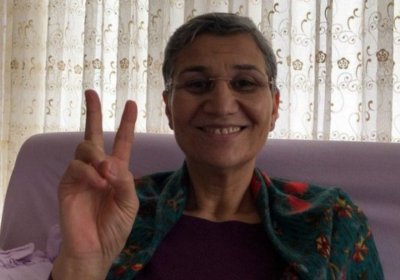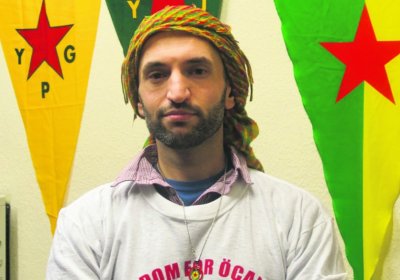Turkish jets began bombing the Xakurke region of northern Iraq on May 26. The following day Turkish helicopters transported troops into the area. This was the latest step in Turkey’s growing military intervention in the predominantly Kurdish north of Iraq, writes Chris Slee.
Kurdistan Workers' Party (PKK)
Peoples Democratic Party MP, Leyla Güven ended her 200-day hunger strike on May 26, after the Turkish government finally allowed imprisoned PKK leader Abdullah Öcalan to meet with his lawyers.
Leyla Guven, a member of Turkey’s parliament for the left-wing, Kurdish-led People’s Democratic party (HDP), launched an indefinite hunger strike on November 7 from Amed Prison, where she was held jailed by Turkey’s regime. Her demand is for an end to the isolation of jailed Kurdistan Workers’ Party (PKK) leader Abdullah Ocalan.
Jailed by Turkey since 1999, Ocalan is the recognised leader of the Kurdish liberation movement. Since 2011, his lawyers have been unable to met with him.
The Court of Justice of the European Union ruled on November 22 that the Kurdistan Workers’ Party (PKK) was wrongly on its list of terrorist organisations between 2014-17.
NSW Supreme Court judge Lucy McCallum discharged the jury on December 6 after it failed to agree on a verdict in the trial of Kurdish journalist Renas Lelikan on “foreign fighter” charges under Australia’s draconian “anti-terrorism” laws.
Turkish troops fired across the border on November 1, killing a six-year-old girl in the northern Syrian village of Til Findir.
The murder was part of a pattern of harassment by the Turkish army against the Democratic Federation of Northern Syria (DFNS). The DFNS is a liberated area administered by democratic local councils, with equal representation of men and women and the inclusion of ethnic and religious minorities.
In recent days, Turkish President Recep Tayyip Erdogan and Israeli Prime Minister Benjamin Netanyahu have once again been ratcheting up their clash of the colonisers, writes Marcel Cartier.
Turkey has condemned Israel’s slaughter of unarmed Palestinians, but the Turkish regime commits the same atrocities against Kurdish people.
On January 20, Turkey launched an invasion of Afrin, one of the three cantons that make up the Democratic Federation of Northern Syria (also known as Rojava), the site of a profound, Kurdish-led social revolution based on multi-ethnic participatory democracy and women’s liberation.
The invasion has killed dozens of civilians in an area that has welcomed hundreds of thousands of refugees from Syria’s conflict. Turkey’s actions would be impossible without at least passive acceptance from several great powers active in Syria. Cihad Hammy looks at the motivations for various major players.
The dark clouds of 21st-century fascism are once again hanging over the heads of the people of northern Syria. As if the inhabitants of the region often referred to as Rojava haven’t suffered enough over the course of the past 7 years of war, the Turkish state has come to the conclusion that the time is ripe to pick up the fallen, bloodied sword from the corpse that is Islamic State.
Together with Salafist mercenaries carrying flags of the Syrian ‘rebels’ – one of the many components of what at one historical juncture seemingly all so long ago was a cohesive ‘Free Syrian Army’ – Erdogan’s regime vows a ‘swift operation’ to destroy ‘terrorism’ in Afrin.
The flags of the Women’s Protection Units (YPJ) and Shengal Women's Units (YJS) were planted in the city centre of Raqqa, which had been the capital city of ISIS, on September 14.
Flanked by military commanders, Iraqi Prime Minister Haider al-Abadi was in the nation’s second-largest city, Mosul, on July 10 to announce the city’s liberation from ISIS.
An end to the three-year-long rule by the extremely violent and authoritarian terrorist group is obviously good news for the city's residents. But it seems unlikely the group’s defeat will mean an end to their suffering, which began long before ISIS captured the city in June 2014.
- Previous page
- Page 3
- Next page











